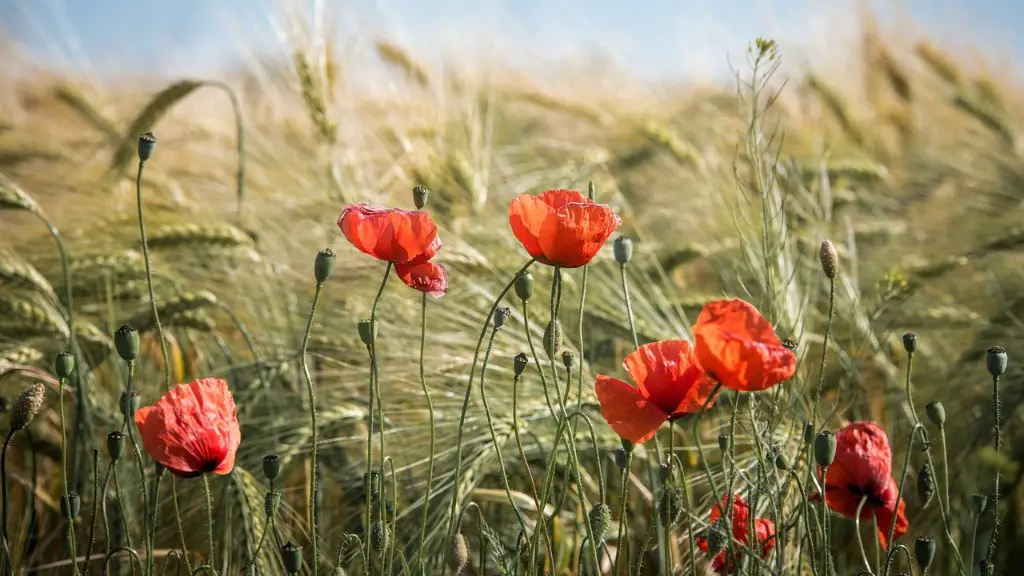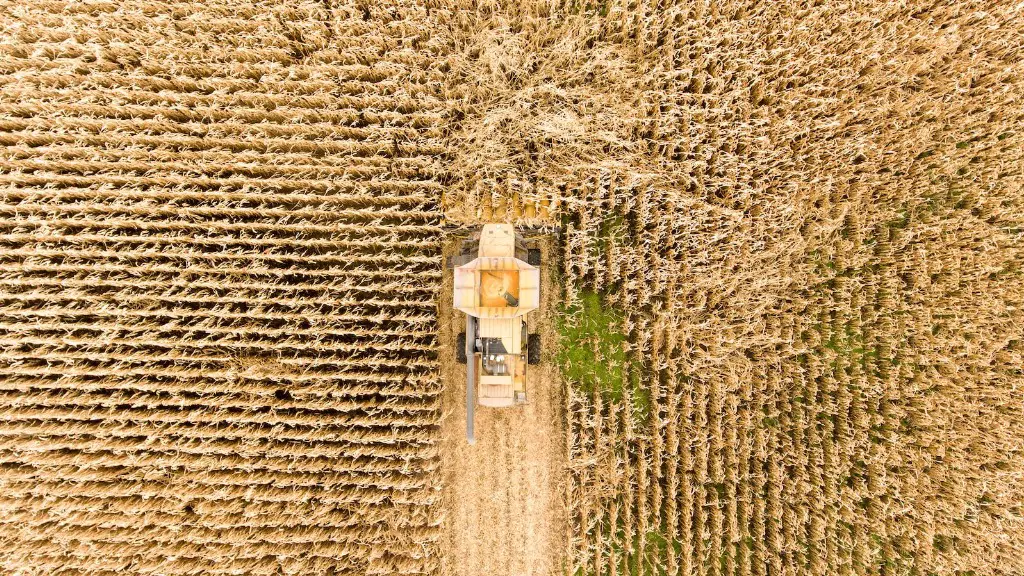Over the past few decades, there has been a dramatic increase in the use of biotechnology in agriculture. Today, farmers are using biotechnology to produce more nutritious food, to improve the quality of their crops, and to increase the efficiency of their operations. Biotechnology is also being used to develop new drugs and vaccines for animals.
The role of biotechnology in agriculture is to help farmers produce more food with fewer resources. Biotechnology can help crops resist disease and pests, tolerate environmental stress, and produce more food.
What is the role of biotechnology?
Biotechnology is a rapidly growing field with many applications in the medical field. therapeutic proteins, synthetic insulin, growth hormone, and diagnostic tests are just a few examples of how biotechnology is impacting medicine. With its ability to produce large quantities of therapeutic proteins and other drugs, biotechnology is playing a vital role in the advancement of medicine.
Biotechnology is the use of living organisms or their components to produce or modify products or processes for specific use. In agriculture, biotechnology is used to improve crop yield, quality, or resistance to pests and diseases.
1. Genetically modified crops: Crops that have been genetically modified to express a desired trait, such as resistance to herbicides or pests, are an example of biotechnology in agriculture.
2. Developing of biofuels: Biofuels, such as ethanol and biodiesel, can be produced from crops such as corn and soybeans. These biofuels can be used as an alternative to fossil fuels.
3. Improving plant growth: Biotechnology can be used to improve the growth rate or yield of crops. For example, plant hormones can be used to stimulate growth.
4. Improving plant seed quality: Biotechnology can be used to improve the quality of plant seeds. For example, seeds can be treated with chemicals or irradiation to improve their germination rate.
5. Improve animal health and breeding: Biotechnology can be used to improve the health and productivity of livestock. For example, animals can be vaccinated against diseases, and genetic engineering can be used to improve the quality of
How is the use of biotechnology in agriculture beneficial to the environment
Products developed with agricultural biotechnology have the potential to significantly reduce greenhouse gas emissions. Cover crops, for example, can provide sustainable biofuels, while fruits and vegetables that stay fresh longer can reduce food waste. In addition, agricultural biotechnology can help farmers to more efficiently use water and other resources, further reducing the environmental impact of agriculture.
Biotechnology is the application of scientific and engineering principles to the processing of materials by biological agents to provide goods and services.
Biotechnology includes a wide range of procedures for modifying living organisms according to human purposes, making possible the production of new products and new processes. Examples of products derived from biotechnology include Insulin, Human growth hormone, erythropoietin, interferons, monoclonal antibodies, vaccines, and blood clotting factors. New processes include DNA fingerprinting, genetic screening, and gene therapy.
What are 5 importance of biotechnology?
Biotechnology can help address many global problems, such as food security, energy security, climate change, aging society, infectious diseases, etc. For example, biotechnology can be used to develop new crops that are more resistant to pests and drought, to develop new sources of renewable energy, to develop new vaccines and therapies for diseases, and to develop new products and services that can help address the needs of an aging population.
Agricultural biotechnology has the potential to advance crop productivity production enhancement and improve food security at global level. However, there is a growing alarm about the genetically engineered crops and its environment effects on food chain. Some experts believe that agricultural biotechnology could have a negative impact on the environment and human health, and caution must be taken before its widespread adoption.
Which is the most useful aspect of agricultural biotechnology?
Biotechnology has helped to increase crop productivity by introducing such qualities as disease resistance and increased drought tolerance to the crops. Now, researchers can select genes for disease resistance from other species and transfer them to important crops. This has led to higher yields and better crop quality.
Biotech plants have the potential to significantly increase food production while reducing the amount of land and resources needed. They can reduce the amount of crops lost to disease and pests, and have a lower impact on the environment than traditional farming methods. In the future, they may also require less water to grow crops, further reducing the impact on our limited resources.
What are 5 biotechnology examples
Biotechnology has a wide range of applications that are essential in various fields such as medicine, agriculture, and industry. Some of the key applications of biotechnology include DNA profiling, DNA cloning, transgenesis, genome analysis, stem cells and tissue engineering. These technologies have revolutionized the way we live and have greatly improved the quality of life for people all over the world.
Biotechnology has had a major impact on the field of medicine, particularly in the area of genetics. The development of insulin, the growth hormone, molecular identity and diagnostics, gene therapies and vaccines such as hepatitis B are some of the major milestones of this field. Biotechnology has also been used to develop new crops and livestock, as well as to produce a variety of chemicals and pharmaceuticals.
The pest-resistant crop can be produced by this process which also reduces the load of chemical pesticides and thus protects the environment, for example, Bt cotton. Disease-resistant crops can be produced by this method which is capable of handling environmental stress like drought, changing temperature, etc. This method is called genetic engineering and it has transformed the agriculture industry.
Biotechnologies are becoming increasingly important in the field of plant genetics. They allow researchers to detect and map genes, discover their functions, select for specific genes in genetic resources and breeding, and transfer genes for specific traits into plants where they are needed. This is providing a wealth of new information and tools that are essential for improving crop productivity and developing new varieties that are better adapted to the changing environment.
What is the positive impact of biotechnology
Biotechnology has been responsible for the creation of myriad products and therapies that combat diseases, fighting world hunger by improving and increasing food production through the generation of higher crop yields, as well as creating biofuels that aid in the reduction of greenhouse gas emissions to combat climate change.
Biotechnology is a field of science that applies biological systems and organisms to create or develop desired products. It is a relatively new field, with many applications yet to be explored. Brewing and baking bread are two common examples of biotechnology in action. In both cases, a living organism (yeast) is used to create a desired product (bread).
Biotechnology has the potential to revolutionize many industries, from food and agriculture to pharmaceuticals and environmental remediation. As we learn more about how to harness the power of biological systems, the potential applications of biotechnology will only continue to grow.
What are the disadvantages of biotechnology in agriculture?
Genetically modified crops may not be viable in the long term due to environmental factors. These crops have the potential to spread their genetic information throughout an ecosystem, resulting in negative consequences such as reduced biodiversity. This could have a serious impact on global food security and the environment.
Biotechnology has been used to genetically modify crops to make them toxic against insect attacks, making them pest-resistant crops. The GMOs (genetically modified organisms) like transgenic crops are created through biotechnology to become more disease-resistant and enhance nutritional value for increasing crop yield. This has been a controversial topic, with some people arguing that these crops are unsafe for human consumption and the environment.
What is the future of biotechnology in agriculture
The potential of biotechnology to offer better solutions to traditional agricultural problems is vast. Today, research is focused on making food production easier, improving food quality and nutrition, and using agriculture to meet non-food needs such as fiber, fuel, and other products. With continued advances in this field, we can expect even more groundbreaking solutions to emerge that will help us meet the challenges of feeding a growing population while preserving our natural resources.
The uses of genetic engineering in plants are often for the purpose of making them more resistant to herbicides, pests, and diseases. However, the end goal is to improve agricultural practices, plant health, and plant productivity for the benefit of society. This may be done through developing new plants that are higher yielding, have improved flavor or nutritional content, or are more drought-resistant. Additionally, genetic engineering can be used to create plants that produce substances that are useful for industry or medicine.
Final Words
The role of biotechnology in agriculture is to help farmers produce more food with fewer inputs. Biotechnology can help farmers to improve crop yields, reduce the use of pesticides and herbicides, and improve the quality of food.
From increasing crop yields to developing drought-resistant plants, biotechnology is playing an ever-growing role in agriculture. As the world population continues to grow, the demand for food will only increase, making biotechnology an increasingly important tool in the fight to ensure a stable food supply. While there are still some risks and uncertainties associated with biotechnology, its potential to help meet the global demand for food makes it a promising tool for the future of agriculture.





